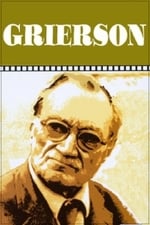Informação pessoal
Reconhecido(a) por Atuação
Créditos conhecidos 5
Sexo Masculino
Nasceu em 13 julho 1905
Faleceu em 7 março 1981 (75 years old)
Local de nascimento Lutherville, Maryland, USA
Nome por qual também é conhecido(a)
- -
Preenchimento de Conteúdo
63
Tão perto e, ainda assim, tão longe.
Inicie Sessão para reportar um problema
Biografia
Francis Bosley Crowther Jr. (July 13, 1905 – March 7, 1981) was an American journalist, writer, and film critic for The New York Times for 27 years. His work helped shape the careers of many actors, directors and screenwriters, though some of his reviews of popular films have been seen as unnecessarily harsh. Crowther was an advocate of foreign-language films in the 1950s and 1960s, particularly those of Roberto Rossellini, Vittorio De Sica, Ingmar Bergman, and Federico Fellini.
Crowther's career began to decline significantly following his persistent criticism of Arthur Penn's Bonnie and Clyde (1967). While other critics also panned the film, prior to a sudden reversal, Crowther remained one of the most dogged critics. He eventually wrote three negative reviews and periodically blasted the film in other reviews and in a letters column response to unhappy readers. The New York Times replaced Crowther as its primary critic in early 1968, and some observers speculated that his endless attacks on Bonnie and Clyde had shown him to be out of touch with current cinema and weighed heavily in his removal. Crowther worked as an executive consultant at Columbia Pictures after leaving the Times.
Crowther died of heart failure on March 7, 1981, at Northern Westchester Hospital in Mount Kisco, New York. He was survived by his wife Florence, who died in 1984; a sister, Nancy Crowther Kappes; three sons, F. Bosley, John, and Jefferson; and four grandchildren.
Francis Bosley Crowther Jr. (July 13, 1905 – March 7, 1981) was an American journalist, writer, and film critic for The New York Times for 27 years. His work helped shape the careers of many actors, directors and screenwriters, though some of his reviews of popular films have been seen as unnecessarily harsh. Crowther was an advocate of foreign-language films in the 1950s and 1960s, particularly those of Roberto Rossellini, Vittorio De Sica, Ingmar Bergman, and Federico Fellini.
Crowther's career began to decline significantly following his persistent criticism of Arthur Penn's Bonnie and Clyde (1967). While other critics also panned the film, prior to a sudden reversal, Crowther remained one of the most dogged critics. He eventually wrote three negative reviews and periodically blasted the film in other reviews and in a letters column response to unhappy readers. The New York Times replaced Crowther as its primary critic in early 1968, and some observers speculated that his endless attacks on Bonnie and Clyde had shown him to be out of touch with current cinema and weighed heavily in his removal. Crowther worked as an executive consultant at Columbia Pictures after leaving the Times.
Crowther died of heart failure on March 7, 1981, at Northern Westchester Hospital in Mount Kisco, New York. He was survived by his wife Florence, who died in 1984; a sister, Nancy Crowther Kappes; three sons, F. Bosley, John, and Jefferson; and four grandchildren.
Reconhecido(a) por
Atuação
|
||||||
|
||||||
|
||||||
|


